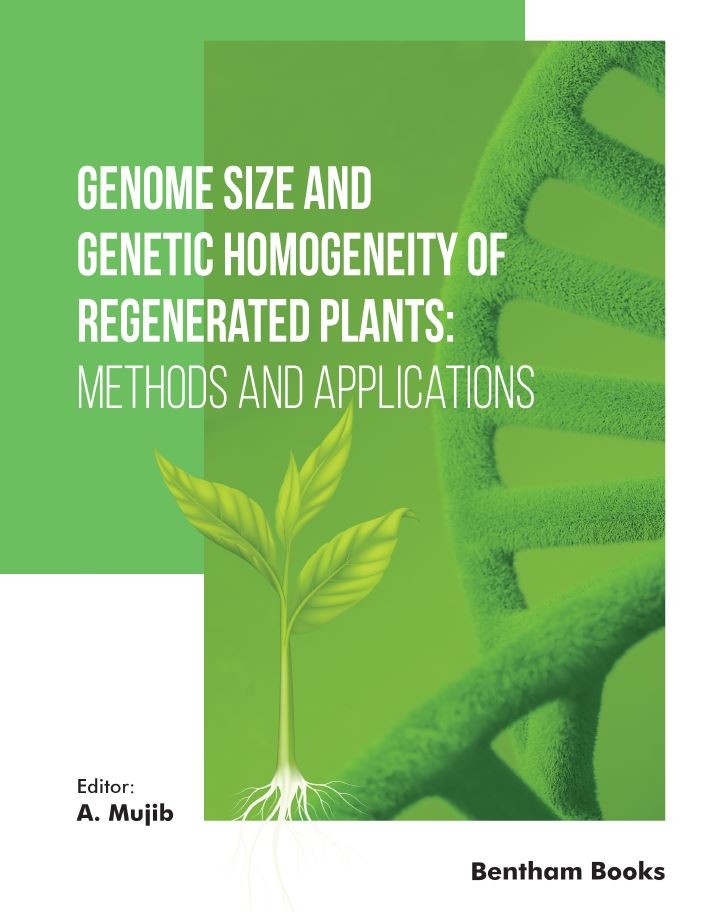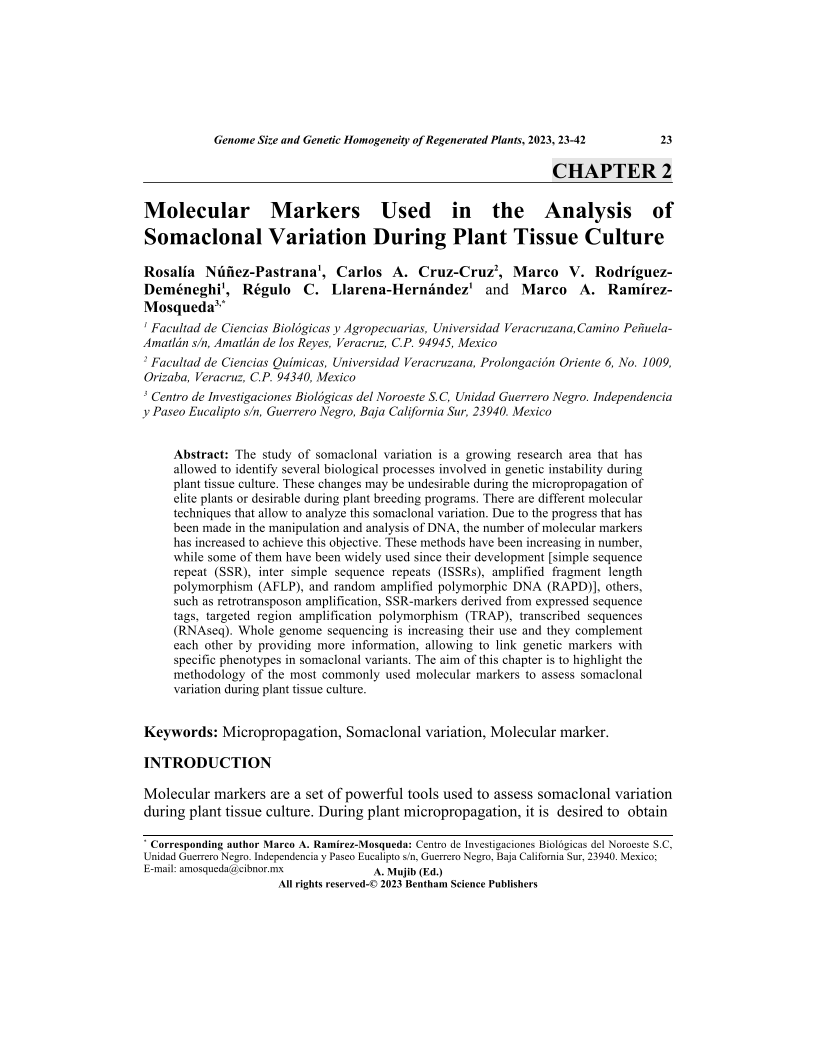Molecular Markers Used in the Analysis of Somaclonal Variation During Plant Tissue Culture

- Authors: Rosalía Núñez Pastrana1, Carlos A. Cruz-Cruz2, Marco V. Rodríguez-Deméneghi3, Régulo C. Llarena-Hernández4, Marco A. Ramírez-Mosqueda5
-
View Affiliations Hide Affiliations1 Facultad de Ciencias Biolgicas y Agropecuarias, Universidad Veracruzana,Camino Peuela-Amatln s/n, Amatln de los Reyes, Veracruz, C.P. 94945, Mexico 2 Facultad de Ciencias Qumicas, Universidad Veracruzana, Prolongacin Oriente 6, No. 1009, Orizaba, Veracruz, C.P. 94340, Mexico 3 Facultad de Ciencias Biolgicas y Agropecuarias, Universidad Veracruzana,Camino Peuela-Amatln s/n, Amatln de los Reyes, Veracruz, C.P. 94945, Mexico 4 Facultad de Ciencias Biolgicas y Agropecuarias, Universidad Veracruzana,Camino Peuela-Amatln s/n, Amatln de los Reyes, Veracruz, C.P. 94945, Mexico 5 Centro de Investigaciones Biolgicas del Noroeste S.C, Unidad Guerrero Negro. Independencia y Paseo Eucalipto s/n, Guerrero Negro, Baja California Sur, 23940. Mexico
- Source: Genome Size and Genetic Homogeneity of Regenerated Plants: Methods and Applications , pp 23-42
- Publication Date: September 2023
- Language: English
Molecular Markers Used in the Analysis of Somaclonal Variation During Plant Tissue Culture, Page 1 of 1
< Previous page | Next page > /docserver/preview/fulltext/9789815165555/chap2-1.gif
The study of somaclonal variation is a growing research area that has allowed to identify several biological processes involved in genetic instability during plant tissue culture. These changes may be undesirable during the micropropagation of elite plants or desirable during plant breeding programs. There are different molecular techniques that allow to analyze this somaclonal variation. Due to the progress that has been made in the manipulation and analysis of DNA, the number of molecular markers has increased to achieve this objective. These methods have been increasing in number, while some of them have been widely used since their development [simple sequence repeat (SSR), inter simple sequence repeats (ISSRs), amplified fragment length polymorphism (AFLP), and random amplified polymorphic DNA (RAPD)], others, such as retrotransposon amplification, SSR-markers derived from expressed sequence tags, targeted region amplification polymorphism (TRAP), transcribed sequences (RNAseq). Whole genome sequencing is increasing their use and they complement each other by providing more information, allowing to link genetic markers with specific phenotypes in somaclonal variants. The aim of this chapter is to highlight the methodology of the most commonly used molecular markers to assess somaclonal variation during plant tissue culture. nbsp;
-
From This Site
/content/books/9789815165555.chap2dcterms_subject,pub_keyword-contentType:Journal -contentType:Figure -contentType:Table -contentType:SupplementaryData105

